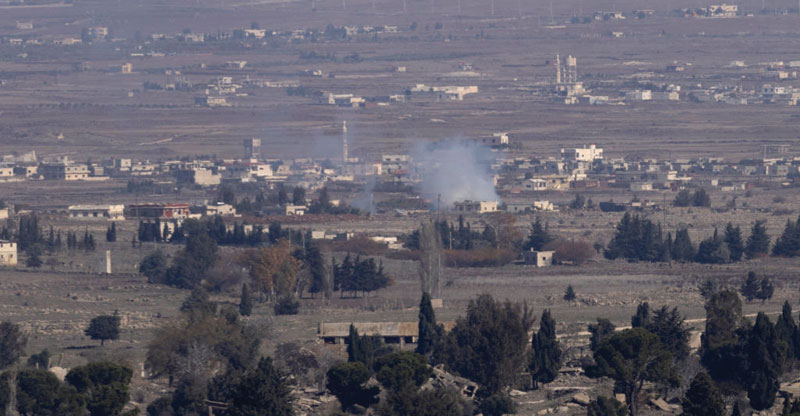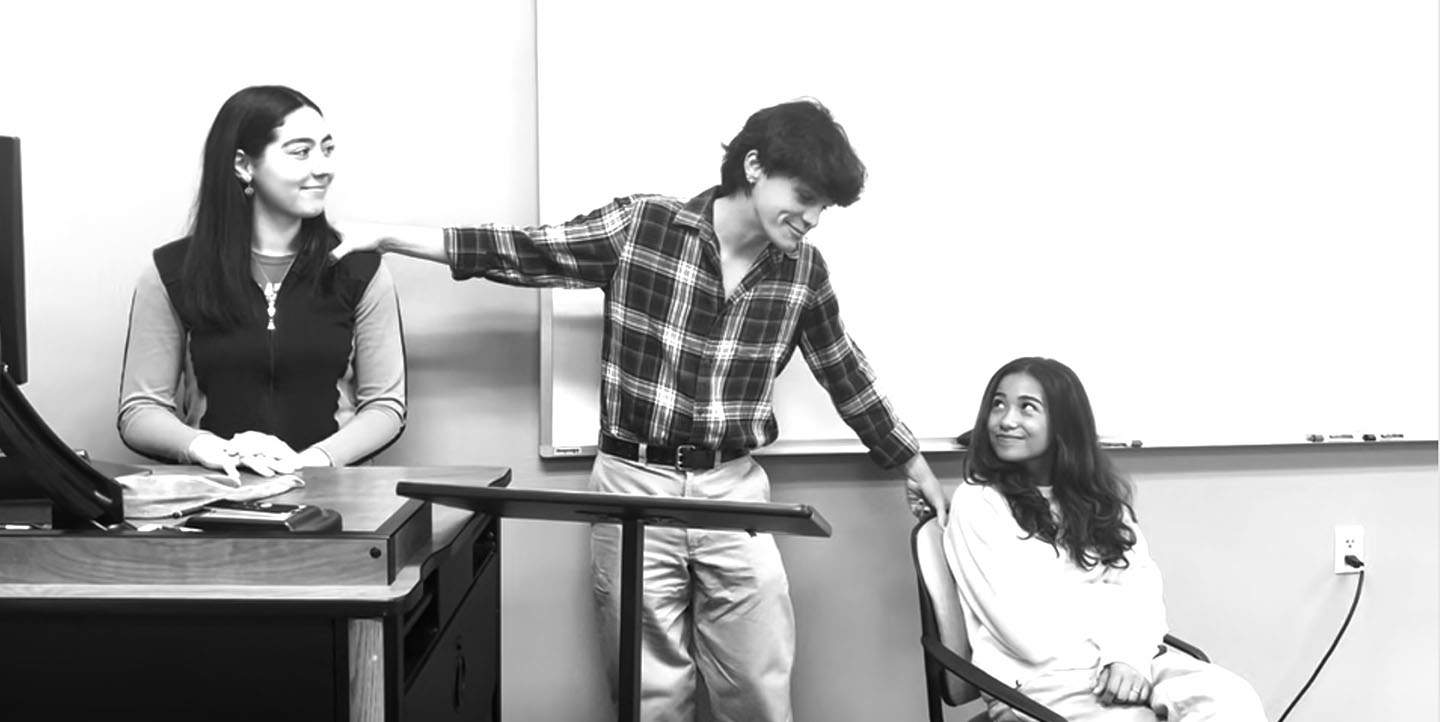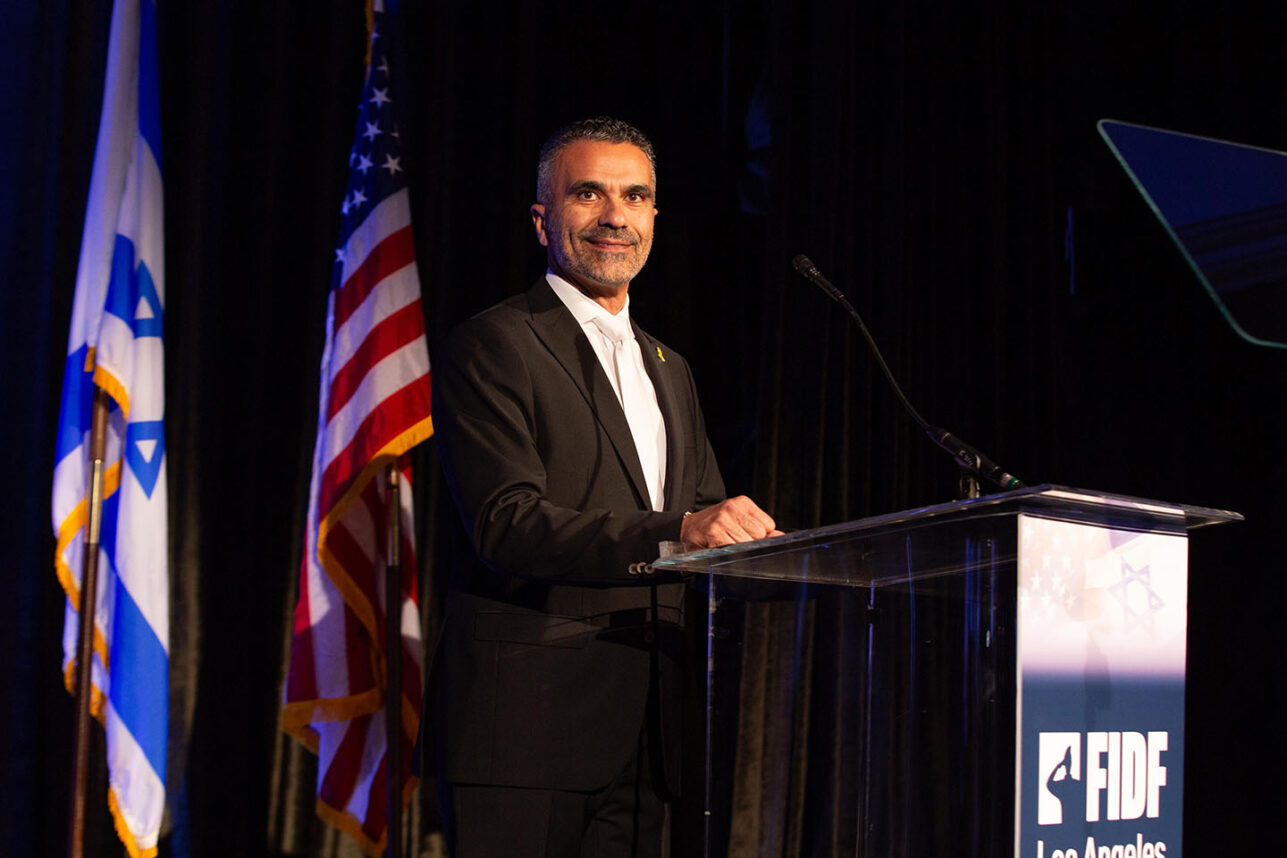Coalition protests modern-day plague of poverty
It wasn’t quite the Red Sea, but the red undulating banners in front of the LAX Hilton did evoke the image of the Exodus as more than 200 people — including Jewish, Christian and Muslim leaders — made their way across Century Boulevard demanding that the hotel end its opposition to living wages for all its workers.
The rally was the latest effort of a coalition of community, civic and faith leaders that has been focusing for the past year on the working and living conditions of hotel workers along Century Boulevard.
“Passover and Holy Week are times when we relive the stories in our faith traditions of suffering and redemption, and an important part of this is recognition of the suffering that exists today,” said the Rev. Anna Olson, deputy director of Clergy and Laity United for Economic Justice, which organized the demonstration.
“Workers at the LAX Hilton exemplify the modern-day plague of working poverty, and we stand with these workers in the faith that just as God heard the cries of the Israelites in ancient Egypt, the cries of these workers will be heard as well,” she said.
“The rally was intended to pressure the LAX Hilton to relax its often illegal and very oppressive policies toward it’s workers,” said Rabbi Jason Van Leeuwen of Congregation B’nai Tikvah, a Conservative shul located near LAX. He emphasized that he doesn’t “use those terms lightly.”
In addition to participating in protests and demonstrations, the leaders have also called for a boycott of the Hilton LAX. The hotel spent almost a quarter of a million dollars to oppose an extension of Los Angeles’ living wage ordinance, enacted last November, to the Century Boulevard Hotel workers, and is currently challenging a revised version of the ordinance which was passed by the City Council in February.
“Although there were references to Good Friday, the dominant theme of the demonstration was the Exodus,” Van Leeuwen said. “This Jewish experience resonated with people of all faiths.”
Extending the analogy, demonstrators carried signs charging the hotel owners with perpetrating modern plagues, including substandard wages, the lack of benefits for affordable health care and violating federal law by firing people for labor organizing.
To further underscore the parallels of moving from oppression toward a better life, Rabbi Van Leeuwen held a piece of matzah before the gathering.
“This is the bread of affliction which our ancestors ate, and some are still forced to eat,” he said, translating from the Seder service. “All who are hungry, all who are tired, let them come, eat and be nourished.”
— Naomi Glauberman, Contributing Writer
Brandeis Collegiate Institute branches out
For 60 years, the Brandeis Collegiate Institute (BCI) has brought 18- to 26-year-olds for an experiential summer on the Brandeis-Bardin Institute campus, which is now part of the newly created American Jewish University following a merger with the University of Judaism. The BCI recently added several new programs for young adults to explore their Jewish selves and Jewish community.
The new Brandeis Leadership Institute (BLI) will afford up to 50 graduate students and young professionals of diverse educational and denominational backgrounds, ages 24 to 32, the opportunity to live and learn on the BCI campus from June 13 to 24.
“BLI creates a unique space for young adults to rejuvenate their spirits and connect to Jewish culture, history, ethics and community,” said Rabbi Laurie Hahn Tapper, director of BCI and Adult Programs.
The Sheva Fellowship, a four- to eight-month residential program that prepares Jewish adults to be environmental experiential Jewish educators, began last January. Currently three fellows are being trained in such areas as organic gardening, outdoor and wilderness skills, Jewish text and tradition and community building under the leadership of Dr. Gabe Goldman, director of experiential and environmental education.
The traditional BCI program, which was originally created in 1941 by Shlomo Bardin in Amherst, N.H., and relocated to Simi Valley in 1947, is now called the BCI Classic. This summer’s session, for up to 65 participants, will run from June 27 to July 22 and will combine artistic expression, trans-denominational learning, spiritual reflection and outdoor exploration.
Additionally, BCI Part II: Recharge and Renew was introduced as a new five-day session in January. Forty-one young adults, including recent BCI alumni along with their friends and significant others who had never participated, joined together for prayer, arts workshops, community service and learning. BCI Part II will be repeated next January, according to Hahn Tapper.
BCI is also reaching out to both distant and local constituencies. The new BCI on the Road brings the BCI experience directly to campuses and conferences outside of Los Angeles. Plus, a newly formed group of BCI and Camp Alonim alumni is creating spiritual, intellectual and social programming for the local Jewish young adult population.
Applications for BLI and BCI Classic are currently being accepted on a rolling admissions basis. For an application or for more information on any BCI program, visit www.thebbi.org/bci or call Rabbi Laurie Hahn Tapper at (805) 582-4450.
— Jane Ulman, Contributing Editor





















 More news and opinions than at a Shabbat dinner, right in your inbox.
More news and opinions than at a Shabbat dinner, right in your inbox.